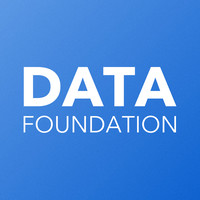 The Data Foundation (@data_foundation) released a report titled “Effective Data Governance: A Survey of Federal Chief Data Officers”. The report surveyed federal government Chief Data Officers (CDO) to assess progress implementing their new roles and responsibilities. There are signs of progress, as federal agencies implement the Evidence Act and supplemental guidance from the Executive Branch.
The Data Foundation (@data_foundation) released a report titled “Effective Data Governance: A Survey of Federal Chief Data Officers”. The report surveyed federal government Chief Data Officers (CDO) to assess progress implementing their new roles and responsibilities. There are signs of progress, as federal agencies implement the Evidence Act and supplemental guidance from the Executive Branch.
Executive Summary
When Congress passed the bipartisan Foundations for Evidence-Based Policymaking Act (Evidence Act), it set clear expectations for federal agencies to strengthen data governance. Agencies are required to inventory data, promote openness and publication of information, and ensure leadership is in place to improve data management overall. It also formalized the role of the Chief Data Officer (CDO) in agencies and standardized CDOs responsibilities.
The Data Foundation, in partnership with Grant Thornton Public Sector and Qlik, surveyed federal government CDOs to assess progress implementing their new roles and responsibilities. There are signs of progress, as federal agencies implement the Evidence Act and supplemental guidance from the Executive Branch. Key findings of the survey include:
- Designated CDOs are experienced, tenured civil servants. Most CDOs have years of experience in the federal government and their specific agency, even if their role as CDO has been brief. Among responding CDOs, 97% worked for the federal government for five or more years; 61% have been with the same organization for at least five years.
- CDOs report progress on key deliverables. Nearly 75% of CDOs reported successful data governance efforts and progress developing data inventories, core requirements enumerated in the Evidence Act.
- Challenges and barriers to effective CDO implementation remain. Even as CDOs make progress on core obligations, they note challenges to meeting individual responsibilities and community expectations. Three-in-five CDOs cite financial and budgetary constraints as significant barriers to promoting data-driven government; half have experienced challenges defining the CDO role in government.
- CDOs agree on ongoing priorities. Despite challenges, many CDOs voice agreement on data governance priorities over the next year. Nearly three-quarters are prioritizing completion of their agency data inventory, two-thirds intend to focus on improving data, as well as implementing a broad data strategy, and half are focused on assessing agency data maturity.
The long-term success of the CDO role is critical for ensuring government data is managed as an asset and used to improve decision-making. Collectively, CDOs indicate progress meeting expectations, despite the challenges. Survey results suggest several opportunities to support CDOs in their implementation of the Evidence Act over the next year:
- CDOs need sustained resources to implement data priorities. As development of the CDO function advances, sufficient resources are required to ensure CDOs have appropriate staff, expertise, and analytical capabilities.
- Agencies must make increased data literacy a priority. Data literacy is the ability to read and communicate the meaning of data, while also recognizing the value of information to policy development and decision-making. Strategies that build a more data literate workforce will strengthen agencies’ ability to manage and use data effectively.
- Agency leadership must recognize and support the CDO role and CDO community. As senior leaders in agencies with important responsibilities, CDOs need sustained support, engagement, and collaboration from other senior leaders responsible for operations, finances, and program implementation.
- Agency leadership must recognize and support the CDO role and CDO community. As senior leaders in agencies with important responsibilities, CDOs need sustained support, engagement, and collaboration from other senior leaders responsible for operations, finances, and program implementation.
The Evidence Act enshrines the role of the federal CDO into law. A growing cohort of CDOs are striving to make the data governance function not just a legal requirement, but one that is embedded into agency cultures and practices. While risks facing the CDO community are real, the potential for strengthening agency performance is great. CDOs are laying the foundation for major improvements in government’s operations that will benefit the American people for years to come.
Join them on Thursday, September 24, at 10:00 am ET for a webinar on this newly released report. During this one-hour webinar, the co-authors will provide an overview of the key findings and recommendations. Register for this event.
